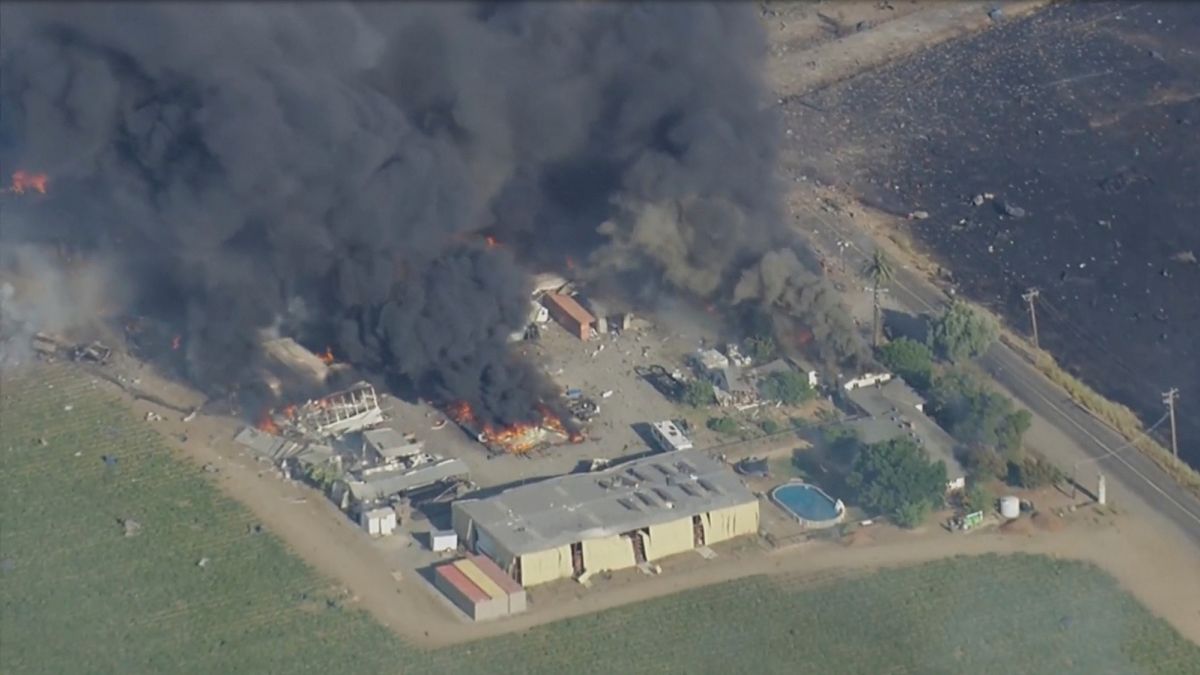

In a series of global events unfolding on July 2, 2025, diverse parts of the world experienced significant developments that underscore the intricate web of geopolitical relationships and tensions. Each event, while distinct in its immediate context, contributes to a broader understanding of international dynamics.
In northern California, an unexpected explosion at a fireworks warehouse led to a substantial fire that spread across rural communities near Sacramento. The local authorities swiftly responded by evacuating affected areas, ensuring safety and minimizing potential harm to residents. The incident underscores the importance of disaster preparedness and the commendable efficiency of emergency services in mitigating challenges.
Turning to Africa, a tragedy occurred in Somalia involving the African Union peacekeeping mission. A military helicopter crash resulted in the loss of at least three lives. This mission plays a critical role in supporting Somali authorities against al-Shabab militants, illustrating the broader security challenges faced in the Horn of Africa where the presence of foreign troops often intersects with domestic resistance and geopolitical interests.
In the Middle East, the delicate truce between Israel and Iran is being tested. Despite a declared ceasefire, underlying tensions regarding nuclear concerns remain unresolved. Iran’s President Masoud Pezeshkian’s decision to halt the nation’s cooperation with the UN nuclear watchdog adds complexity to an already fragile situation. This decision followed recent Israeli and US strikes on Iranian targets, highlighting the region’s persistent volatility. Amid this backdrop, comments from former US President Donald Trump about Israel’s agreement to a 60-day ceasefire in Gaza suggest efforts to stabilize at least part of the region, with mediation from Qatar and Egypt.
In Ukraine, the shifting landscape of international assistance and security comes into focus as the United States halts shipments of key air defense missiles and other weaponry previously pledged. This decision, spurred by concerns over American stockpile levels, reflects the balancing act nations must perform between foreign commitments and domestic capabilities. While Kyiv expressed apprehension about potential emboldening effects on Russian aggression, the US underlines the necessity of prioritizing national interests following a Department of Defense review.
Parallelly in Europe, Ukrainian campaigners have raised concerns regarding the UK’s energy dealings involving Russia-linked contracts. These actions are seen as incompatible with the broader geopolitical stance against Russian aggression in Ukraine, placing energy security and political alliances under the microscope.
These stories collectively highlight how interconnected the world remains, with each region’s challenges reverberating on a global scale. As nations navigate their unique challenges, the interplay between diplomacy, security, and cooperation continues to shape the path forward. Moving forward, these narratives illustrate the importance of collaboration, resilience, and adaptability as the foundations of managing global affairs.
Source: {link}
